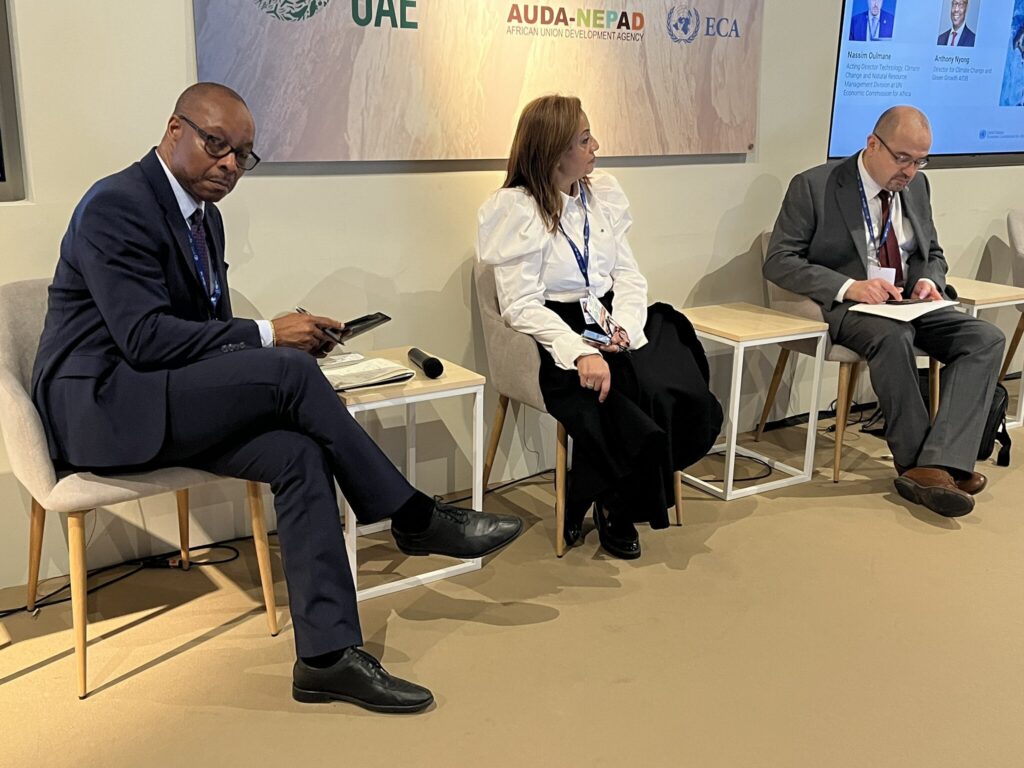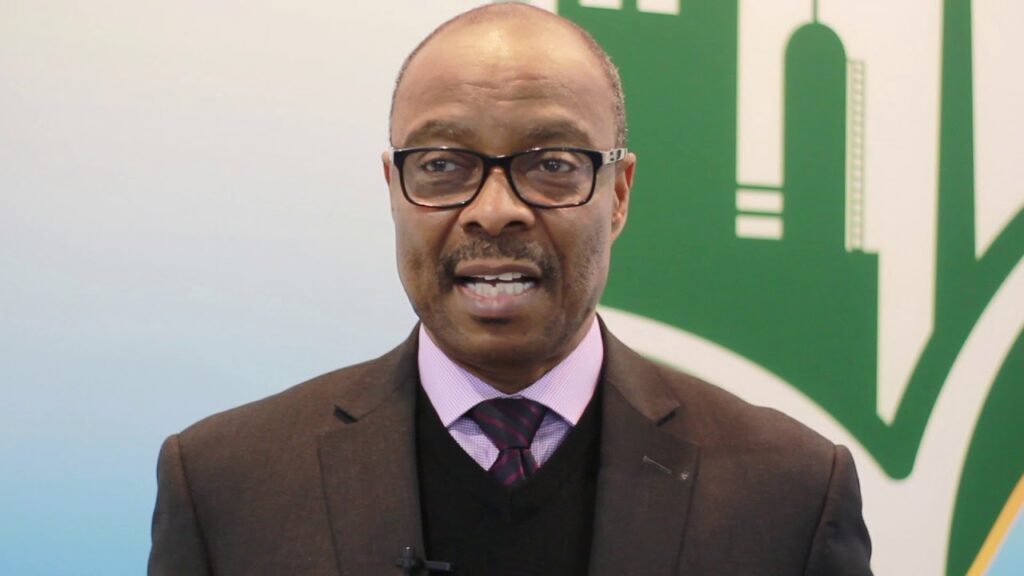Professor Anthony Nyong: Africa Needs Low-Emission Growth, not Just Decarbonization
Director of Climate Change and Green Growth at African Development Bank, Professor Anthony Nyong, emphasized that Africa’s primary challenge lies in achieving low-emission growth rather than pursuing decarbonization, as the continent is not yet heavily carbonized.
Nyong underscored the importance of prioritizing agriculture over energy, highlighting that 70 percent of Africa’s infrastructure is yet to be built and should be designed with climate resilience in mind.
He said that at COP 28, a side event titled “Moving from Principles to Practice: An Update on MDB Support towards a Just Transition” where they were addressing the critical challenges associated with a just transition and the strategies to address them.
“Our goal is to transition towards a climate-resilient development strategy, not just focus on emissions reduction,” Nyong stated.
In collaboration with the ILO, the AfDB is developing a framework for job creation in the resilience sector by promoting innovations in solar panels, electric vehicles, and other technologies.
“The approach we have launched is designed to address all the aforementioned aspects,” Nyong explained.
The AfDB has adopted a dual focus: ensuring that climate adaptation policies and measures are inclusive and that climate change impacts are addressed in a non-neutral manner.

“We will initially prioritize LDCs, single island states, and conflict-affected countries, as they are the most vulnerable and have the potential to adapt,” Nyong said. “We will focus on social inclusivity in all our adaptation projects.”
Nyong cautioned against overemphasizing the just energy transition, as it may distract from the fundamental issues.
“The just energy transition partnerships tend to focus on the human element affected by the path to net zero, which can be misleading,” he explained. “We have addressed the labor force element and how to integrate it, but climate finance is distinct from just transition finance.”
Speaking at the same event, Barbara Rambousek, Director of Gender and Economic Inclusion at the European Bank for Reconstruction and Development (EBRD), emphasized the importance of ensuring that people have a stake in the new green economy.
“If they don’t have it, they will not give us the political mandate to make the fundamental changes in terms of how we live and work that are so necessary,” Rambousek stated.
She echoed the concerns about the pace of the transition to green jobs, noting that while these jobs tend to be better paid, the transition is slow due to the time required to develop the necessary skills in the workforce.
Fernando Antolin, Manager for the Social Sector Department at the African Development Bank, called for accelerated efforts to revamp the skills development ecosystem, particularly in upper secondary and tertiary vocational education.
“We need to change the vehicle ecosystem of skill development,” Antolin stated. “It’s a hard job to do, but we are expanding quickly to change training teachers and introduce pedagogy within the schools to prepare young people for the future.” Antolin emphasized the need for a long-term and inclusive strategy, particularly for Africa’s most vulnerable populations, including indigenous people.



Thanks for sharing. I read many of your blog posts, cool, your blog is very good.